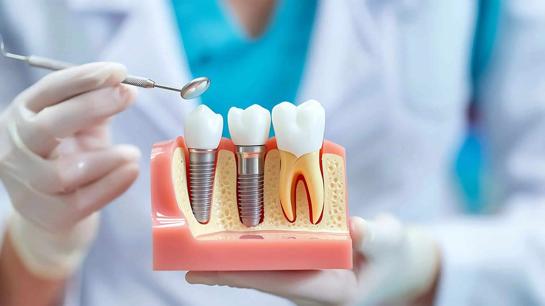ICSI Abroad: What No One Really Tells You (But You Deserve to Know)
Let’s be honest: nobody grows up dreaming, “I hope one day I’ll be scouring expat clinics for ICSI treatment abroad.” How do you even get here? Maybe you’ve done the tests, swallowed too many “unexplained infertility” comments, watched months turn into years. You ride the emotional seesaw—hope, logic, even a few desperate midnight forum scrolls where you read stories from people doing IVF in places you can’t pronounce. Suddenly, ICSI abroad isn’t a fringe curiosity, but a sane (if still kind of daunting) Plan B.
If this sounds familiar, pull up a chair. Here’s the practical, jittery, and honest walkthrough—not the kind you’ll find on clinic websites, but the version that gets passed around in group chats, blends solid facts with “here’s how it really feels,” and doesn’t smooth out the stumbling blocks.
What Is ICSI, Anyway?
So, basics. ICSI means Intracytoplasmic Sperm Injection. Not an epic sci-fi movie, just a next-level lab trick. Instead of putting dozens of sperm near an egg and praying one’s a hero, the embryologist literally selects a single, promising swimmer and injects it (super gently, but for real) right into the egg’s shell. It’s part ballet, part magic, part “please work” moment.
Why this angle? When sperm counts are low, or motility’s off, or the sperm are weird shapes—or let’s be honest, if you’ve already blown through a regular IVF cycle or two—icsi treatment abroad gives you a fighting chance. Sometimes it’s a workaround after vasectomy, sometimes a hail-mary for couples with zero embryos last time.
There are also more “refined” twins: IMSI (fancier microscope), PICSI (sticky dish to pick the healthiest sperm). Most clinics abroad stick to the basics unless you really want bells and whistles.
Who Ends Up Doing ICSI Abroad?
You won’t see it in brochures, but here’s the actual lineup:
- Couples who’ve done everything—diet, acupuncture, vitamins, old-school IVF.
- People with stubborn male-factor infertility: low count, no motility, blockages, post-cancer survivors.
- Older would-be parents, or those with “unexplained” cards dealt (so many more than you’d guess).
- Folks who just can’t with $18k per cycle at home, or 12-month waitlists (ugh).
- Plus, honestly? A fair number of people who never thought “abroad” was their style, until hope—plus research and spreadsheet math—overcame their nerves.
You’d be surprised: in Budapest, Cyprus, Greece, Spain, you’ll meet Canadians, Americans, Brits, Aussies—everyone quietly calculating flights and med schedules, sometimes popping up in the same lobby in the same week.
What Can—and Sometimes Does—Go Wrong?
Let’s not sugarcoat. ICSI is science—but it’s not invincible.
- The egg can break during injection. The lab tech is skilled, but eggs are delicate.
- You might have a “nothing-to-transfer” outcome even after everything.
- Sometimes, the sperm under the microscope look good but nothing fertilizes. No one likes to talk about it, but it happens.
- There’s a minuscule bump in certain birth defects (nothing you’ll feel day-to-day, but something honest clinics will raise).
- And the “fun” of IVF risks? Ovarian hyperstimulation syndrome (prepare for tight pants and light headaches), infection risk after retrieval, emotional exhaust.
What makes abroad different? Logistics. If you have a bad reaction, what’s the ER like? Is your communication line open with the doctor, or just a harried admin at 7pm? You need answers, not just reassurances.
Getting Ready: It’s Never as Simple as the Checklist
You know all those “simple steps” guides? They rarely mention:
- Chasing lab results across time zones because one marker was off.
- Dosing yourself with stims at odd hours because the clinic is six hours ahead.
- Trying to explain to your pharmacist back home which meds you need for “egg retrieval… no, it’s not for me, it’s for my wife, yes, we really need them NOW.”
- Booking flights around ovulation triggers – not as easy as Expedia thinks.
- Packing every document times two (one lost in the bottom of your suitcase, obviously).
Plus, real world stuff:
- Trying not to snap at your partner for blinking too loud when the hormones kick in.
- Wondering why hotel blackout curtains are never actually blackout.
People prep emotionally too, but few talk about the waiting—the hours between scan and update, those moments when you second-guess everything from your breakfast to your life plan.
What’s the Procedure—The Not-So-Glossy Play-by-Play
- Hormone shots, daily. Bruises happen, nerves, and a few panicked “Did I miss a dose?!” moments.
- Monitoring. Blood draws, scans. “Follicle growth” suddenly becomes the small talk of your week.
- Trigger shot—one of those surreal moments that feels like it’s supposed to mean more than it does.
- Egg retrieval—quick nap, quick wakeup. Most folks remember the snack tray more than the recover room.
- Sperm: day-of or frozen. Many partners report feeling both weirdly useless and incredibly vital.
- ICSI: lab techs do their magic.
- Fertilization updates—sometimes at midnight, with you scrolling your phone instead of sleeping.
- Embryo transfer: quick, gentle, anticlimactic.
- The two-week wait: where time slows, hope flickers, and Google becomes your inadvertent best friend.
Recovery and What Actually Matters
Physically? Not as bad as it sounds. Soreness, a bit of swelling, maybe cramps. Emotionally? That’s the hard part.
- You’ll scroll forums at 1am (“8dp5dt cramping—is it good or bad?”).
- Every twinge seems like a sign.
- You’ll rationalize the same choice three ways before breakfast.
Most clinics abroad check in by email, WhatsApp, or calls. The best ones actually answer weekends, especially if you’re panicking. Some offer post-cycle “support calls”—not a bad idea even if you’re stoic.
If it succeeds, you celebrate, tentatively, then fully. If not—sometimes you grieve, sometimes you just go numb, sometimes you rebook flights for another try.
How Effective Is ICSI Abroad, Really?
- Fertilization? 70–80% of injected eggs. Not all will become embryos, and not all embryos are strong.
- Pregnancy rates? About 30–50% per transfer cycle under 35, less as age rises. The truth is: numbers look like home stats when labs are good, but the emotional ride feels wilder.
- Some cycles are dead-ends. Some work on the first shot. Most people, if you ask off the record, live in that blurry middle—surprise, disappointment, perseverance.
Clinics abroad show you clean numbers, but it’s the stories—in the waiting room, the weirdly comforting chats over hospital toast—that give the real context.
Alternatives—And When ICSI Abroad Isn’t the Answer
- Regular IVF, if sperm parameters are alright.
- Donor sperm or donor eggs, sometimes a better shot if repeated cycles fail.
- IUI (insemination): simpler, good for mild cases, rarely for the tough ones.
- Surrogacy, adoption, sometimes: stepping outside the lab.
- Living childfree. An option rarely mentioned, but quietly considered too.
Many couples “ladder up”—try IUI, move to IVF, then to ICSI abroad if other roads dead-end. Some leap ahead by necessity (biology or budget), and it’s all okay.
Benefits of ICSI Abroad—From Those Who’ve Been There
- Cost. Obvious but true: the same cycle may cost half—or less—compared to the US, UK, Australia.
- Shorter waits. Appointments booked in weeks, not quarters or years.
- More flexible care. Clinics abroad often pride themselves on longer consults, tough cases, custom protocols.
- Privacy. Sometimes, disappearing for a while is a relief from “but when are YOU having kids?” chatter.
- Chance to combine change with travel—sometimes a bonus, sometimes a mild distraction.
Ironically, the company of fellow travelers—some quietly hopeful, some world-weary—ends up being part of the best support.
The FAQs (The Messy, Not-the-Brochure Version)
- Is it painful?
- Shots: fine, annoying. Retrieval: mostly a quick nap, a bit sore. The emotional part? Never easy.
- How long do I have to stay?
- At least 10–14 days, often more. Embryos operate by their own timeline.
- Can I really trust clinics abroad?
- Depends—some are brilliant, some just exist to rake in cash. Good ones answer all your questions, no matter how pushy you are.
- Are success rates real?
- Ask for live birth rates, not just positive tests. Great clinics abroad share detailed stats—push for specifics.
- What if it doesn’t work?
- You grieve, reassess, get mad, order takeout, scroll forums, and maybe—just maybe—try again.
- Do people regret it?
- Some do, most don’t. But nearly everyone says at least now they “know,” instead of always wondering.
When the Dust Settles
Here’s the actual bottom line: no matter the city, the language, the med brands, ICSI abroad is just people trying—for families, for closure, for a new beginning. It’s perfectly imperfect, sometimes glorious, sometimes gutting.
If you’re in it: find direct answers. Embrace the mess. Take notes, vent often, celebrate your own doggedness. And remember, if all you feel is “honestly, I’m just tired,” you’re probably more ready than you think—if not for a miracle, then at least for an honest shot.

















